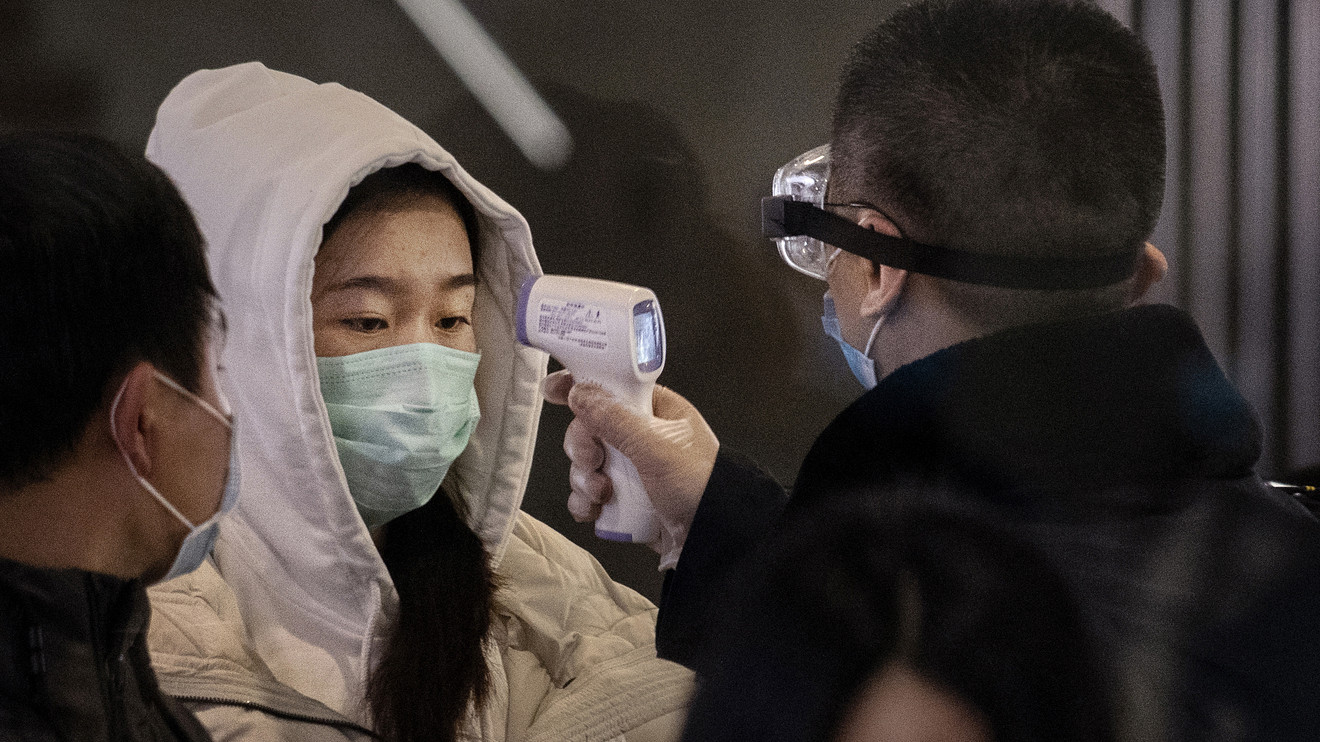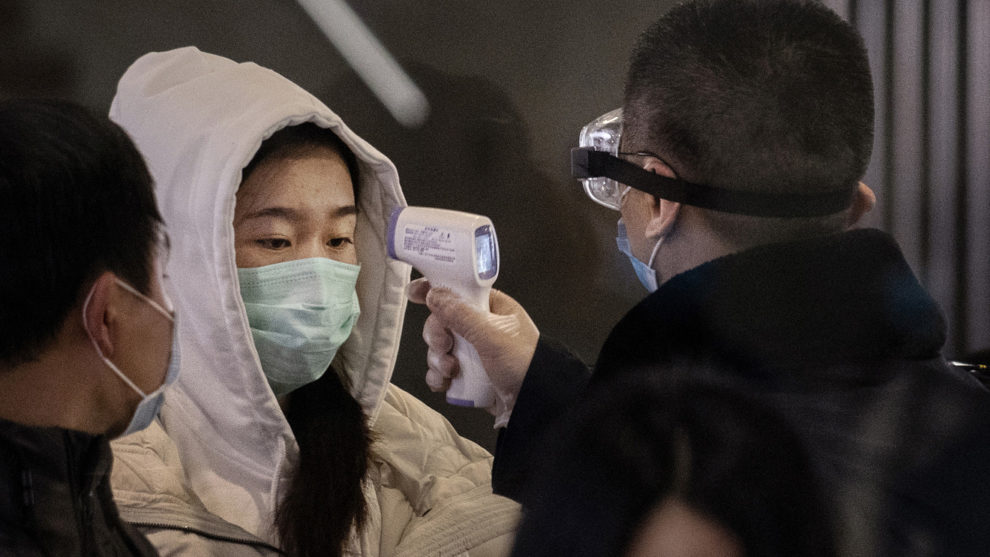
As the coronavirus out of China spreads and gets deadlier, shares of health care companies that announce plans to take part in finding a vaccine, or identifying patients with the new strain, have rallied sharply in very active trading.
On Thursday, among the bigger coronavirus gainers was Inovio Pharmaceuticals Inc.’s stock INO, +11.63% , which ran up 12% to the highest close since May 9. Trading volume swelled to 12.3 million shares, compared with the full-day average over the past 30 days of about 1.4 million shares, according to FactSet.
The Pennsylvania-based biotechnology company said early Thursday that it was awarded a grant of up to $9 million by the Coalition for Epidemic Preparedness Innovations (CEPI) to develop a vaccine for the new strain of coronavirus, 2019-nCoV, which originated in Wuhan, China, and has killed no less than 17 people.
Don’t miss: Coronavirus infections have tripled in a week. Here’s why the mysterious illness from China is spreading so quickly.
The grant builds on Inovio’s existing partnership with CEPI, in which the company was granted in April 2018 an award of up to $56 million to develop vaccines for Middle East Respiratory Syndrome (MERS) and Lassa fever.
The latest grant was aimed at funding development of Inovio’s new vaccine matched to 2019-nCoV, INO-4800, through phase 1 human testing.
Inovio and its partners was able to advance its vaccine for Zika virus “from bench to human testing” in seven months, which Inovio said it believed to be the fastest vaccine development on record in recent decades.
“We have challenged ourselves to do this one even faster,” said Joseph Kim, in a phone interview with MarketWatch.
Kim said after the DNA sequence of the new coronavirus strain was made publicly available on Jan. 11, Inovio was able to design and construct a potential vaccine in “a matter of hours,” and the animal-testing process has already begun.
Kim said he’s targeting the first human tests to begin in the U.S. “before early summer.” And while it could typically take years to get a vaccine through all three phases of human testing, “in a potential outbreak setting, there could be a lot of shortcuts,” Kim said.
Meanwhile, the World Health Organization’s (WHO) emergency committee, which was convened to give advice on whether the 2019-nCoV outbreak should be deemed a public health emergency of international concern (PHEIC), said that it “did not constitute a PHEIC,” but added that the committee should reconvene in a “matter of days.”
Analyst Jason McCarthy at Maxim Group reiterated his buy rating on Inovio and his price target for the stock of $6.00, which is 55% above current levels. In a note to clients titled, “New coronavirus; who do you call? Inovio,” McCarthy said the previously developed vaccine candidates for MERS and Zika was a key reason why CEPI picked Inovio for 2019-nCoV.
Outside of the coronavirus programs, Inovio has one treatment for brain cancer in phase 3 trials and two immuno-oncology therapies in phase 2 trials.
Inovio’s stock has run up 67% over the past three months but was still down 23% over the past 12 months. In comparison, the iShares Nasdaq Biotechnology exchange-traded fund IBB, -0.87% has advanced 13% the past three months, the SPDR Health Care Select Sector ETF has advanced 13% and the S&P 500 index SPX, +0.11% has gained 10%.
“We believe the [healthcare] sector will continue to perform well driven by increased demand for drugs, diagnostic testing equipment and hospital services,” wrote J.P. Morgan analysts in a research note.
Inovio said its collaborators in the development of the new coronavirus vaccine include the Wistar Institute, VGXI, a fully owned subsidiary of GeneOne Life Science Inc. 011000, +1.75% and Twist Bioscience Corp. Twist’s stock TWST, -4.85% fell 4.9% on Thursday, and has slipped 4.1% this week.
In addition to CEPI’s existing partnerships with Inovio and the University of Queensland in Australia, CEPI also announced new partnerships with Moderna Inc. and the U.S. National Institute of Allergy and Infectious Diseases.
Moderna’s stock closed down 2.3%, erasing an earlier gain of as much as 3.1%, but has still gained 4.1% this week.
The company said earlier that it has collaborated with the Vaccine Research Center (VRC) of the National Institute of Allergy and Infectious Diseases (NIAID), which is part of the National Institutes of Health (NIH), to develop a 2019-nCoV vaccine. CEPI will fund the manufacture of the vaccine.
Co-Diagnostics’s stock nearly doubles on massive volume
Another coronavirus screamer Thursday was Co-Diagnostics Inc.’s stock CODX, +79.65% , which nearly doubled (up 80%) to a one-year high. Trading volume shot up to 36.1 million shares, compared with the full-day average of about 161,000 shares.
The company said before the opening bell that it has “completed principle design work” for a test to screen for 2019-nCoV.
Chief Executive Dwight Egan said in a statement that if the World Health Organization declares the illness a global health emergency, he believes Co-Diagnostics would be in position to “quickly assist” in providing its test to the affected countries.
The company did not respond to a request for comment.
Among other coronavirus high-fliers, shares of NanoViricides Inc. NNVC, +43.19% , which makes nano-medicines for viral diseases, bounced 43% in active trading, after tumbling 55% on Tuesday. The seesawing comes after the stock rocketed 153% on Monday.
Also read: This is how far and fast the coronavirus has spread through U.S. stocks.
Shares of Novavax Inc. NVAX, +8.04% , which developed a vaccine for MERS in 2013, hiked up 8.0% on Thursday, and has climbed 33% this week.
Cerus Corp.’s stock CERS, +4.19% gained 4.2% after the company pointed to a recent study published in “Transfusion Medicine” regarding the inactivation of the SARS coronavirus in human platelets using Cerus’s Intercept Blood Systems for platelets. The company stressed that 2109-nCoV is at least 70% similar to SARS-CoV.












